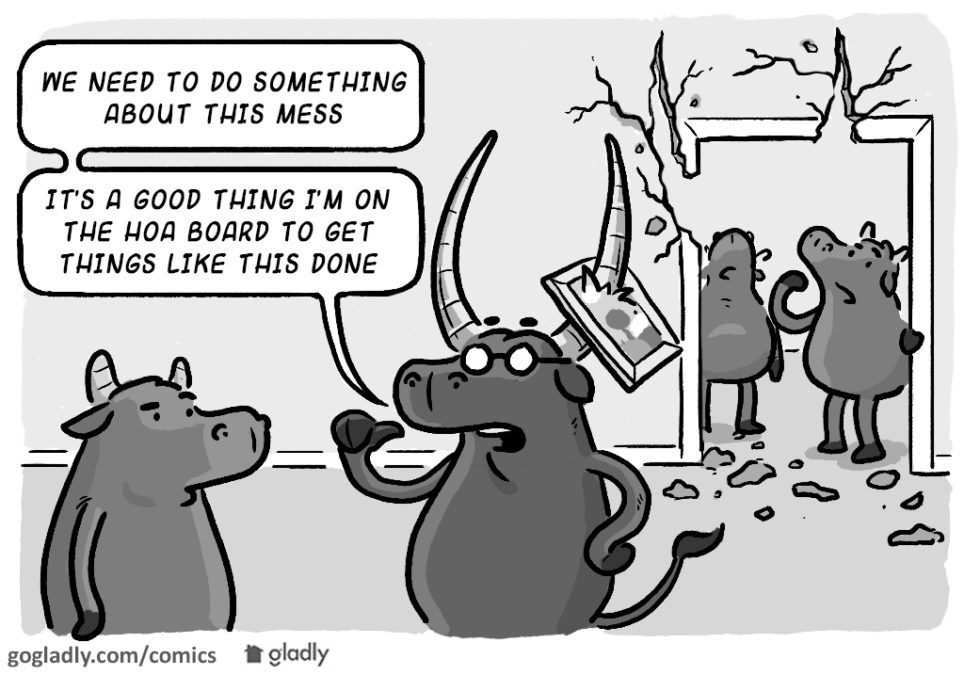Despite the best of intentions, many times an HOA board actually becomes the downfall of their association. How does this happen? Well, there are a lot of different ways for things to go awry, but here are 4 clues that the HOA board might actually be causing more problems rather than solving them.
You Act in a Vacuum
From managing money to enforcing rules, the board has a lot on its plate – and in its hands. The responsibility that comes with that power includes basing decisions on good information, which requires:
- Asking plenty of questions
- Seeking (and heeding) expert advice
- Getting educated on issues where necessary
As vital as these steps are, there’s another, perhaps even more important one: staying connected with your residents. Rather than coming up with an idea that looks good on paper and running with it, be sure to make the pulse of your community part of pre-evaluation. First, know your homeowners. Second, ask for their input and feedback. After all, they’re the ones most affected by HOA decisions.
While you were elected to do a job, that doesn’t mean your opinion is shared by the majority of residents. Test out your proposal with everyone who has a vested interest.
You Micromanage
One of the keys to being an effective manager or board member is understanding everyone’s role – and then letting them fill it. Even managers don’t need to stick their fingers in the nuts and bolts of everyday decision-making. Trust those you’ve delegated to and stop conducting meetings between meetings. Follow-up is one thing, but stepping on everyone’s toes out of mistrust or a need for control is – well – something jerks do. And we all know you’re not a jerk.
You Use Email — a Lot
Email can help you expedite your work. Great! But while it’s handy and necessary, it should be used as sparingly as possible for board business. Why? Because as great as email is, it’s not a replacement for human interaction and physical meetings.
For one thing, email doesn’t promote transparency. Assumptions can easily be made — right or wrong — about what’s really going on behind closed doors. Email also makes it hard to generate thoughtful discussion and get your point across, softened or strengthened by body language and expression. It just doesn’t work that way. And what’s more — do YOU enjoy getting 53 emails per day and being expected to keep up?
You Don’t Communicate
Think back to the last decision the board made that caused some waves. How was your communication throughout the process? While you have a duty to act in the best interests of the association as a whole — sometimes making unpopular decisions – you have just as big a duty to communicate during that process via:
- Open Meetings
- Feedback Periods
- Special Mailings and Meetings
- Recruting Commitee Members to Involve More Residents
- Publish a Page on the Website With Transparent Information
Taking these steps can make tough decisions seem less hasty and more properly vetted, letting homeowners know their opinions are both valid and valued. When choices are made, the reasons must be clearly communicated. And if you’ve done a good job throughout the process, you’ll cut way back on the controversy and push-back.
- 4 Signs You Might Be Hurting Your HOA - October 9, 2017



 Help
Help
What a well thought out article and it makes me think on those exact points for our Board. Other members don’t come to the meetings and I ‘settle’ for depending on e mails to keep updating everyone. It isn’t that effective but now I see it can be overdone. Thanks!
Great tips!